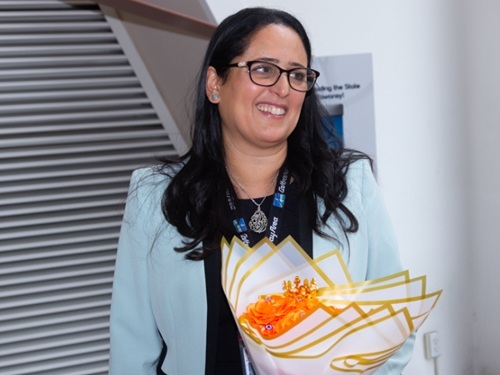A new report highlights ongoing changes in transportation needs across Massachusetts as the state recovers from the COVID-19 pandemic.
[Above photo via the Massachusetts Governor’s Office]
Issued July 13 and dubbed the “Future of Work Report,” the study – commissioned by Governor Charlie Baker (R) (seen above) – explores what the implications of COVID-19 might be for Massachusetts across its regions, demographics, economic sectors, commercial centers, local downtowns, transportation system, and public spaces.

The report concludes that changing ways of working – such as hybrid and remote work – may shift the “center of gravity” away from the “urban core” of the state’s major cities. At the same time, changes in the economic landscape will mean that expansive workforce training will be necessary to connect workers with the skills they need for the future economy, with potentially 300,000 to 400,000 people needing to transition to different occupations or occupational categories over the next decade.
Among the major changes affecting transportation demand due to those trends: Demand for office real estate may fall as workers spend more time in residential areas due to hybrid work; public transit ridership is likely to fall, with the steepest decline likely in commuter rail; less business travel compared to pre-pandemic levels; and population growth across the state may slow.

To cope with those changes, the Massachusetts Bay Transportation Authority is changing its Regional Rail Schedule, shifting towards more consistent, regular service throughout the day, compared to pre-pandemic service skewed heavily toward morning and evening “rush hour” service. Those adjustments reflect analysis of ridership trends throughout the pandemic and into the recovery, the report noted.
The MBTA’s new Regional Rail Schedule also supports increasing travel habits like intra-line (non-Boston) trips and reverse commutes to Gateway Cities. It also supports local trips by teleworkers and commuters who only travel to work spaces three days per week, the report said.
Meanwhile, the Shared Streets and Spaces Grant Program overseen by the Massachusetts Department of Transportation should play a more pivotal role moving forward. In 2020, that program helped communities statewide make streetscape changes to support outdoor dining and alternative transportation modes such as bicycling, walking, and off-road trails. Since 2020, the program has awarded $33 million to 183 communities, funding more than 300 projects.
To support those and other changes in mobility demand across the state, the fiscal year 2022 Massachusetts budget – signed by Gov. Baker on July 16 – provides $1.36 billion in total operating budget transfers for the MBTA, $403 million for MassDOT, and $90.5 million for regional transit authorities.
 States
States
Dina El-Tawansy Appointed Director of Caltrans
July 11, 2025 States
States

